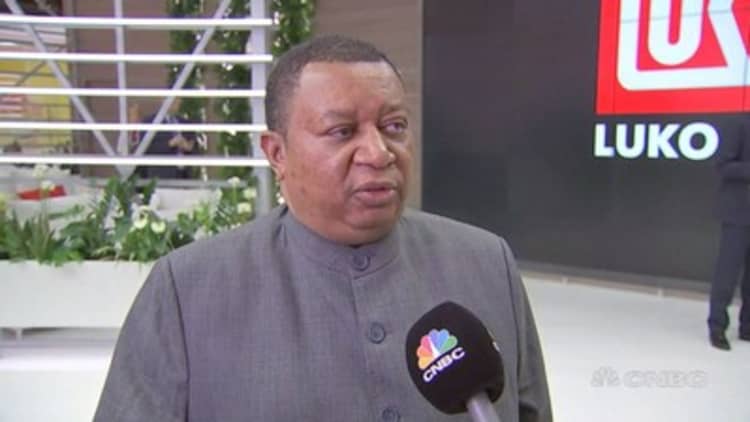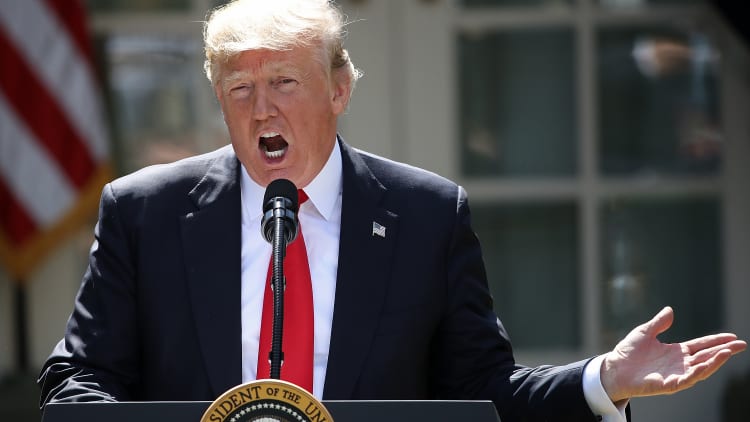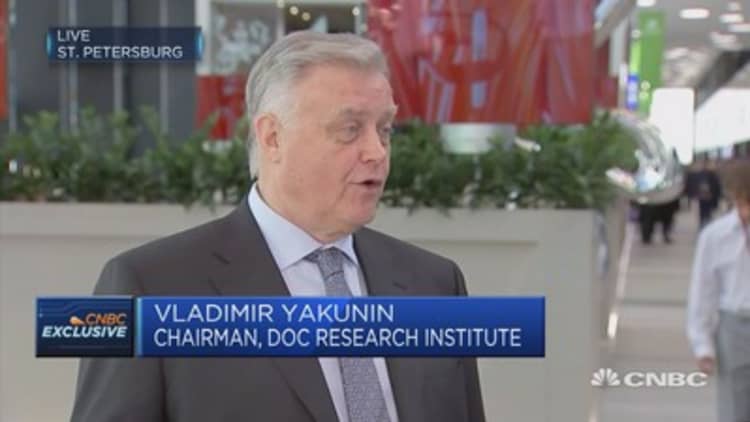
A blossoming friendship between Saudi Arabia and Russia is being reflected in a recent spate of deals, and signals yet another sea change in the ever-evolving global order.
The Middle Eastern kingdom has enjoyed a longstanding and broadly cooperative relationship with the U.S., dating back to the start of oil exploration within Saudi Arabia in the 1930s. The latest cast of key characters, headed by U.S. President Donald Trump and Saudi's King Salman, has established a warmer rapport than seen during the final years of former President Barack Obama's presidency when tensions developed over Saudi Arabia's stance on Iran and Yemen.
Yet cooperative links are now flourishing between the kingdom and Russia – the U.S.'s longstanding foe.
The flagship symbol of cooperation is the oil output cut agreement between OPEC and non-OPEC members, originally brokered and recently extended thanks largely to the determined efforts of Saudi Arabian and Russian representatives.
OPEC President Mohammed Barkindo told CNBC on Thursday from St. Petersburg that there was no doubt the "turning point" for the deal was when both countries decided to come together in China last year to sign a statement of cooperation that was "widely acclaimed".
"For them to decide to come together to address the challenges of the market … I think it is a welcome development by all producing countries," he asserted, adding that just this week both sides had reiterated their joint determination to work together to ensure that the oil market's volatility is tackled.

Kirill Dmitriev, chief executive officer (CEO) of the sovereign wealth fund the Russian Direct Investment Fund (RDIF), also hailed the deal as "historic", in a conversation with CNBC on Friday.
"It's the first time Saudi Arabia and Russia are working together very well on the international stage," he explained.
In other signs of tightening relations, Friday morning alone saw Russia's largest oil producer, Rosneft, and Saudi Arabia's national oil company Saudi Aramco announce that they will look into joint investments in the kingdom with another Russian gas giant Lukoil also revealing that it will consider marketing oil alongside Saudi Aramco. That same morning, Saudi Arabia confirmed it would evaluate the possibility of joining Russia's arctic liquid natural gas (LNG) project.

These developments followed news late Thursday that Trump had decided to withdraw the U.S. from the Paris climate change agreement with many commentators questioning the broader and longer-term implications of the U.S. stepping back from its leadership role in this pivotal international agreement.
The decision does not just reflect a retreat from leadership but a more widespread inability and unwillingness of countries to compromise, according to Vladimir Yakunin, former Russian Railways president and current chairman of the DOC Research Institute, a German think tank.
Speaking to CNBC from St. Petersburg on Friday, Yakunin said he expects this to result in a turmoil-ridden time ahead for world economies. He also predicted that trends showing the rise in power of Eastern countries alongside a decline in the West's strength would persist, as data continue to show the rapid relative economic growth in Asia.
"At the G-20 for example, reputable experts, they are talking about values, they are talking about the shifting of economic engines towards East, towards Asia, that is a fact … It's not possible just to close eyes and to see it and to think 'we Russians are the best' or 'we Americans are the best' or 'we Europeans are the best' – look at the figures," he argued.


